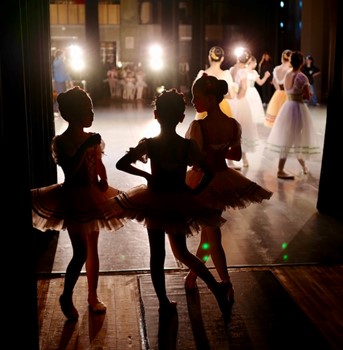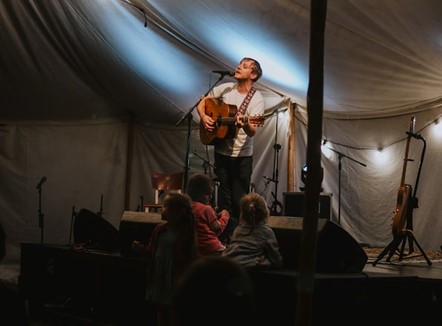
Even the most basic reading, writing, and arithmetic lessons clearly relate to life in the adult world. But textbooks alone can’t teach kids everything they need to know about acting as adults. Could acting itself and exposure to the performing arts play a role in setting kids up for success?
In addition to providing interactive entertainment, exposure to performing arts during childhood can teach children critical life skills about discipline, teamwork, flexibility, and commitment. Engaging in performing arts can also benefit a child’s cognition, creativity, memory, communication skills, as well as their ability to develop relationships.
No math book or spelling packet can teach such a wide range of skills, and certainly not while encouraging kids to dress up, sing, and dance with their friends. Travis Preston of CalArts takes a peek backstage at the hidden benefits of early exposure to performing arts.
Performing Arts Can Build a Child’s Work Ethic
If a spoonful of sugar helps the medicine go down and hiding sweet potatoes in brownies is an acceptable way to sneak vegetables into a toddler, then perhaps the key to teaching kids the value of hard work is to make the process enjoyable. While acting, dancing, and creating music can all be fun activities, each require dedication on behalf of the performer.
While young actors must memorize and practice their lines aloud before taking the stage, young musicians often spend several hours a day singing or playing an instrument in the hopes of sounding melodious, and young dancers of every genre from ballet to hip-hop condition their bodies to move with a rhythm that makes choreographed steps seem natural.
As with every learning experience, the art of performing has its share of trials and frustrations, but these creative and enjoyable activities can help encourage children to remain steadfast in their commitments while also teaching them time management skills and the virtues of patience and diligence.
Performing Arts Can Help a Child Think Outside the Box
Performing arts encourages a similar creativity for all participants. Whether they’re coming up with suggestions for new dance moves, adding a stylish flare to stage decorations, enhancing a character’s lines with their own personal touch, or re-creating the chords of a popular song by ear, artists exercise creativity on a daily basis.
The hands-on nature of performing arts also provides a space for children to learn the inevitability and importance of making mistakes. One of the first things that many performing arts teachers explain is that it’s okay to make mistakes, and that the best thing to do after a slip-up, be it a missed line, a skipped step, or an off note, is to keep calm and keep going.
While it’s natural to feel ashamed or frustrated after making a mistake, performance teachers often encourage students to shift their perspective of the situation by emphasizing that the audience may not even have noticed a mistake and that unless a performer draws attention to it by saying “oops” or halting the performance, even those who caught the error will soon forget.
In these situations, solo performers must learn to think quickly about how to get back on track without losing their temper or composure, which builds an admirable resilience. Group performers likewise have to work together to resolve any performance mishaps by being flexible and forgiving to keep the performance alive.

Performing Arts Can Strengthen a Child’s Socialization Skills
Performing on stage can be intimidating for even the most experienced and outgoing performers. Standing before an audience to showcase their talents and hard work at a young age can make children more comfortable with public speaking, a skill of pivotal importance in many professional careers.
In the process of helping children to overcome stage fright, teachers of the arts often give young performers the social tools they need to face other anxiety-spiking situations by coaching them on how to navigate stress and anxiety, both on stage and off. One of the most important benefits that many children gain in the process of performing is the empowerment of self-confidence.
Yet beyond these character-building traits, performing can also boost children’s peer interactions, encourage respect of instructors in a non-classroom setting, and strengthen their collaboration capacities. Performing arts involving multi-person dance teams, choirs, and cast lists also provide children the opportunity to build lasting friendships with like-minded peers.
Conclusion
Introducing children to the performing arts at a young age not only provides them a source of immediate entertainment and direct social interactions but can also help them develop a well-rounded character and a skill set, including patience, dedication, communication, collaboration, flexibility, and creativity, that will serve them in years to come.
